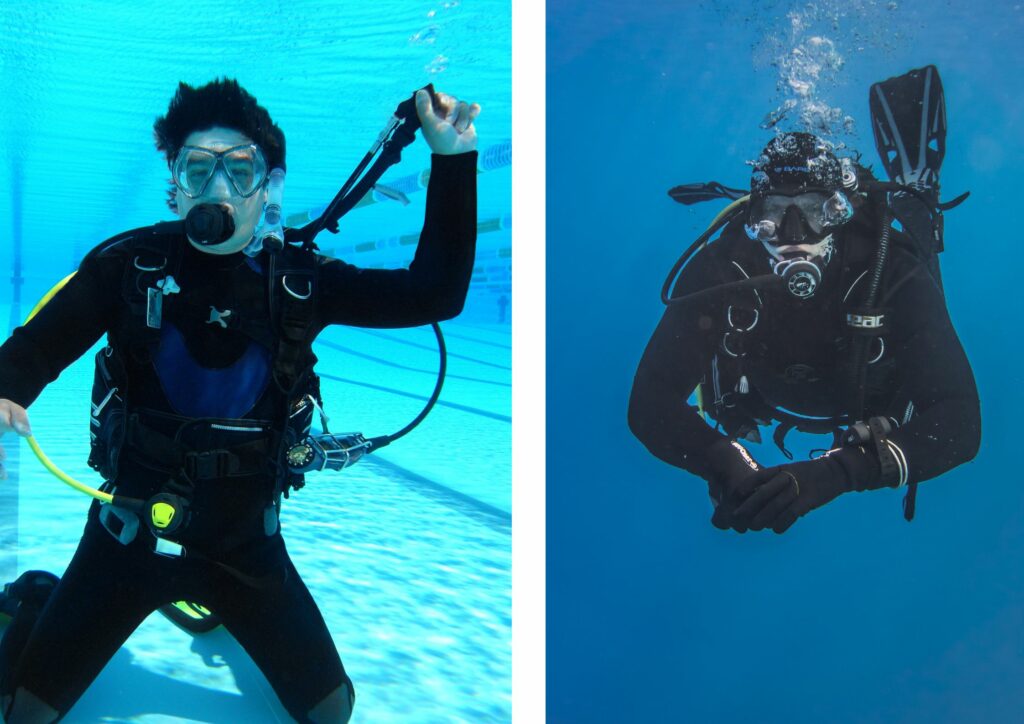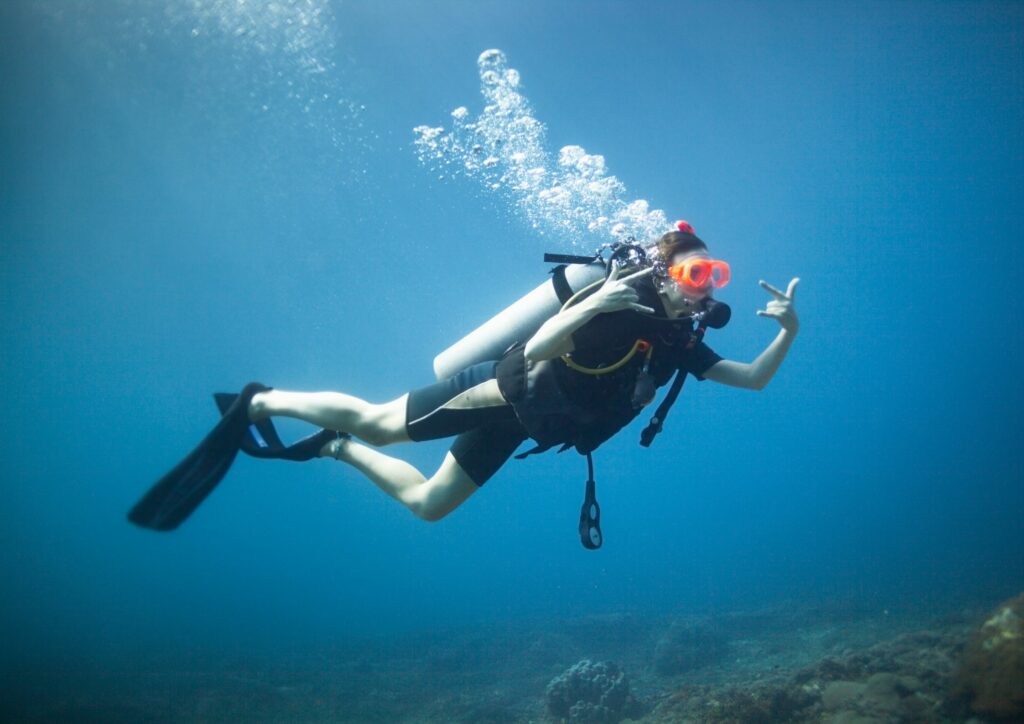Uncovering the mysteries beneath the ocean waves, exploring the kaleidoscopic wonder of coral reefs, swimming alongside an array of exquisite marine life — Scuba diving offers extraordinary experiences as you submerge yourself into this fascinating aquatic realm. But for an unforgettable adventure, mastering the essentials skills is crucial. This not only ensures safety but makes journeys under the sea far more enjoyable. Ready to dive deeper? Join us as we explore the 5 key skills for successful Scuba Diving.
Don’t Hold Your Breath: Why Continuous Breathing is Key

If you’ve ever thought about scuba diving, you’ve probably heard the golden rule – ‘Don’t hold your breath’. This simple instruction holds the key to a safe and enjoyable underwater adventure. By breathing continuously, you’re able to maintain a balance in pressure which is critically important during a dive. Unlike on dry land where oxygen levels are stable, in the deep sea, they may fluctuate leading to a risk of oxygen toxicity or lung overpressure accidents if you hold your breath. Breathing continuously also helps in keeping your blood oxygenated, ensuring your body functions optimally even under pressure. As soon as you dive, the importance of this concept becomes evident. Not adhering to it could lead to potentially dangerous, if not life-threatening, situations. A true understanding of this will also deepen your respect for the activity and the underwater world.
Equalise Early and Often: Balancing Pressure While Scuba Diving
In the world of scuba diving, ‘Equalise early and often’ is a familiar phrase, and a principle to live by. It’s not just a catchy mantra but an imperative skill set that allows divers to enjoy the captivating underwater world sans physical discomfort. As you descend deeper, the pressure exerted by the surrounding water steadily increases causing barotrauma or ear pain. The severity of this pain can range from mild to intense, affecting the quality of your dive. To counter this, the art of pressure equalisation becomes your best friend. Foregoing the pain and discomfort means understanding and applying the technique of equalising pressure at regular intervals, aiding in the smooth navigation of pressure changes.
Mastering the Art of Clearing Your Mask
Nothing enhances your dive experience more than a clear, unobstructed view of the enchanting marine life around you. Achieving and maintaining this lies in mastering the art of clearing your mask. This skill, though simple in theory, often presents a hurdle to many divers. Vox populi speaks of fogging or flooding in masks, which can lead to panic and disorientation, working against the relaxing nature of a dive. The solution to this predicament is keeping cool and following the correct procedure to clear your mask. By perfecting this skill, you can dive with more confidence, free from the fear of mask-related issues.
Keep Breathing: Techniques for Clearing Your Regulator
The regulator is your lifeline underwater. This ingenious device enables us humans to breathe in a realm not naturally designed for us. At times, water might intrude the regulator, bringing with it discomfort and a potential element of danger. Familiarity with the correct technique to clear your regulator effectively is critical in these situations. Whether you are expelling air forcefully from your lungs or using the purge button of your regulator, the aim is to dislodge the water intrusion and restore the ease of breathing, thus ensuring a seamless underwater exploration.
Neutral Buoyancy: Maintaining Steady Position Underwater
Observe a sea turtle as it glides effortlessly through water, holding a steady position, neither sinking nor floating. This is neutral buoyancy at work. It’s nature’s way of perfect balance underwater, a skill every diver should master for an effortless floating experience. Achieving neutral buoyancy conserves energy, prevents accidental damage to marine life and the sea bed, and most importantly, makes your dive a lot more enjoyable. By carefully manipulating your buoyancy compensator device and the weights, you can hit the right balance and perform the beautiful underwater ballet. This skill bridges the gap between a fumbling novice and an experienced diver, enabling a relaxed and controlled scuba diving encounter.
Unlock Your Underwater Potential in Bali Diving: The Essence of Scuba Skills
The essence of scuba skills in Bali diving lies in the perfect blend of technical proficiency and serene underwater exploration. Bali’s diverse marine ecosystems, from the vibrant coral reefs of Nusa Penida to the mysterious wrecks of Tulamben, demand a mastery of essential diving techniques. Divers must navigate currents, manage buoyancy, and execute precise movements to fully appreciate the underwater wonders Bali has to offer. These skills not only ensure safety but also enhance the overall diving experience, allowing divers to immerse themselves in Bali’s aquatic beauty with confidence and ease.

As a beginner in scuba diving, this article has been incredibly helpful. It’s great to see the importance of mastering these skills highlighted, especially for those who are new to the sport. I’m excited to start practicing and improving my skills, knowing that it will make my future dives even more enjoyable.
Hi Fatima, thank you for taking the time to share your thoughts on our article! We’re thrilled to hear that it has been helpful to you as a beginner in scuba diving. Mastering the essential skills is indeed crucial for a safe and enjoyable experience underwater. At Gill Divers, we believe that continuous learning and improvement are key to becoming a confident and skilled diver. If you have any questions or need guidance on practicing your new skills, please don’t hesitate to reach out to us at Tel: +65 6734 9373 or Email: [email protected]. We’re always here to help. Good luck with your diving journey!
I’ve had some experience with scuba diving, and I can attest that these skills are vital. The article provides a comprehensive overview of the importance of mastering these skills, especially when diving in Bali, which has diverse marine ecosystems. I appreciate the emphasis on safety and the enhancement of the overall diving experience.
Thank you for sharing your personal experience with scuba diving, Nurul Hidayah! We’re thrilled to hear that our article resonated with you. At Gill Divers, we believe that mastering the essential skills of scuba diving is crucial not only for safety but also for an unforgettable underwater adventure. Our team of experienced divers and instructors are always happy to help you improve your skills and explore the wonders of Bali’s marine ecosystems. If you have any questions or would like to learn more about our services, please don’t hesitate to reach out to us at Tel: +65 6734 9373 or Email: [email protected]. We look forward to hearing from you soon!.
I completely agree that mastering scuba diving skills is crucial for a safe and enjoyable experience. The article highlights some of the essential skills, such as continuous breathing, equalising pressure, clearing your mask, regulator, and maintaining neutral buoyancy. These skills are not only important for safety but also enhance the overall diving experience.
Hi Aisha Jamal, we’re glad you found our article informative and helpful! Mastering scuba diving skills is indeed crucial for a safe and enjoyable experience. At Gill Divers, we believe that having the right knowledge and techniques can make all the difference in your diving adventure. If you have any questions or concerns about scuba diving or would like to know more about our services, please don’t hesitate to reach out to us at Tel: +65 6734 9373, Email: [email protected]. We’re always here to help! Thanks for joining the conversation.